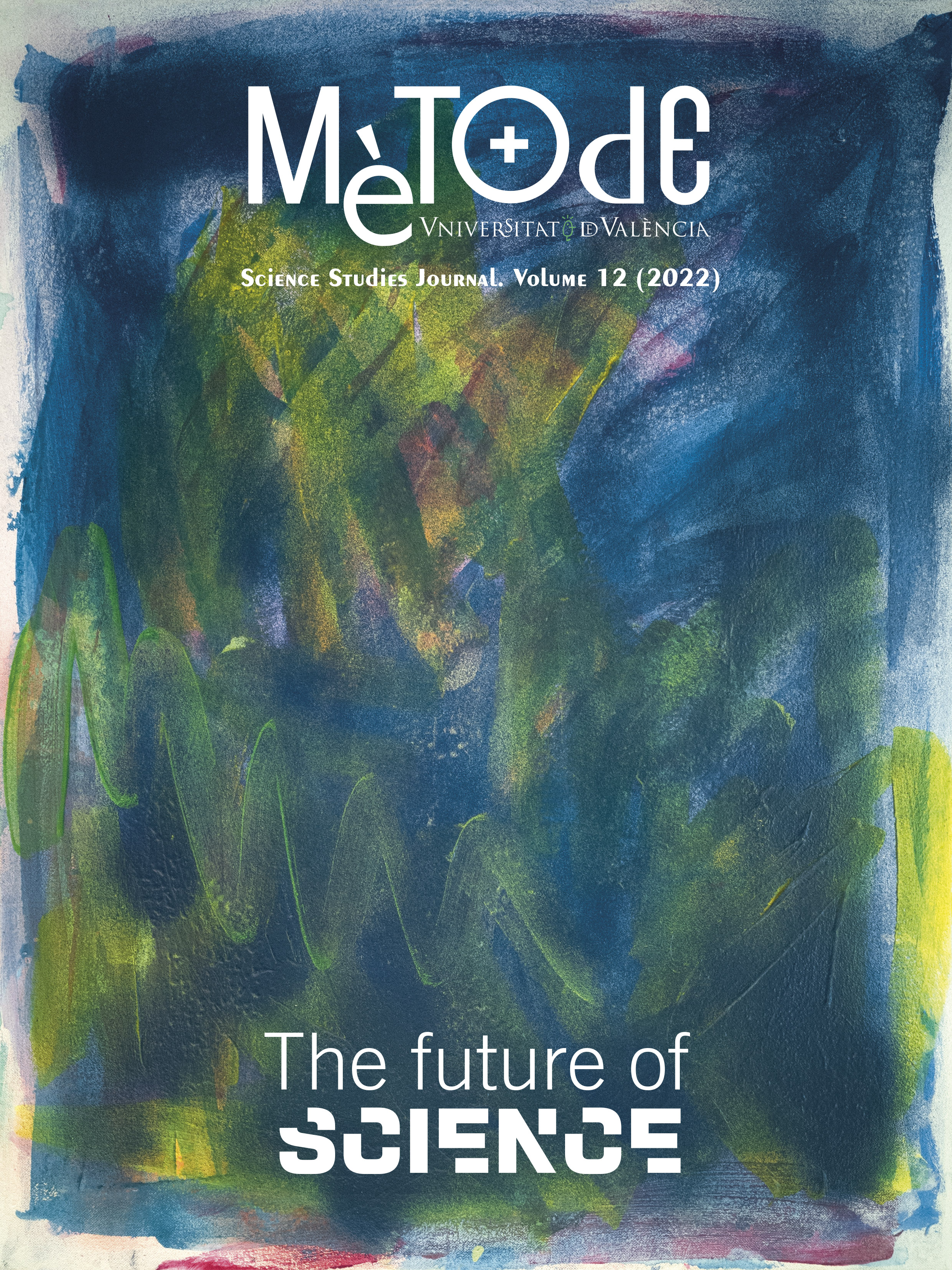Surpassing our genes: The subversive post-human message of 'Gattaca'
DOI:
https://doi.org/10.7203/metode.12.20673Keywords:
bioethics, genetics, rhetoric, film criticism, science fiction Abstract
Abstract
The movie Gattaca is often referenced in public debates about the societal dangers of human gene editing. In the public imaginary, its message is clear: the dystopian future it portrays stands as a warning against the societal acceptance of genetic perfectionism and genetic discrimination. This article argues that such a reading misses a deeper message of this cinematic text. Rather than offer a bioethics lesson against the use of genetics to make better human babies, in our opinion, the film actually argues that such genetic tampering is unlikely to succeed, but that the genetic engineering of a superior post-human individual is both possible and desirable.
 Downloads
Downloads
 References
References
Agar, N. (2005). Liberal eugenics: In defense of human enhancement. Blackwell.
Elshtain, J. B. (2004). The body and the question for control. In H. W. Baillie & T. K. Casey (Eds.), Is human nature obsolete?: Genetics, bioengineering, and the future of the human condition (pp. 155–175). MIT Press.
Evans, J. (2018, 27 November). The road to enhancement, via human gene editing, is paved with good intentions. The Conversation. Retrieved from https://theconversation.com/the-road-to-enhancement-via-human-gene-editing-is-paved-with-good-intentions-107677
Green, R. M. (2007). Babies by design: The ethics of genetic choice. Yale University Press.
Isaacson, W. (2021). The code breaker: Jennifer Douda, gene editing, and the future of the human race. Simon & Schuster.
Lynch, J. (2019). Bioethics and Brave New World: Science fiction and public articulation of bioethics. Rhetoric of Health and Medicine, 2(1), 33–59. https://doi.org/10.5744/rhm.2019.1002
Maslin, J. A. (1997, October 24). Film Review. The next bigotry: Privilege by genetic perfection. The New York Times, E18.
Niccol, A. (Director). (1997). Gattaca [Motion picture]. Columbia Pictures.
Von Burg, R. (2010). Cinematic genetics: GATTACA, Essentially Yours, and the rhetoric of genetic determinism. Southern Communication Journal, 75(1), 1–16. https://doi.org/10.1080/10417940902896839
Downloads
Published
How to Cite
-
Abstract3260
-
PDF1684
Issue
Section
License
![]()
All the documents in the OJS platform are open access and property of their respective authors.
Authors publishing in the journal agree to the following terms:
- Authors keep the rights and guarantee Metode Science Studies Journal the right to be the first publication of the document, licensed under a Creative Commons Attribution-NonCommercial-NoDerivatives 4.0 International License that allows others to share the work with an acknowledgement of authorship and publication in the journal.
- Authors are allowed and encouraged to spread their work through electronic means using personal or institutional websites (institutional open archives, personal websites or professional and academic networks profiles) once the text has been published.





